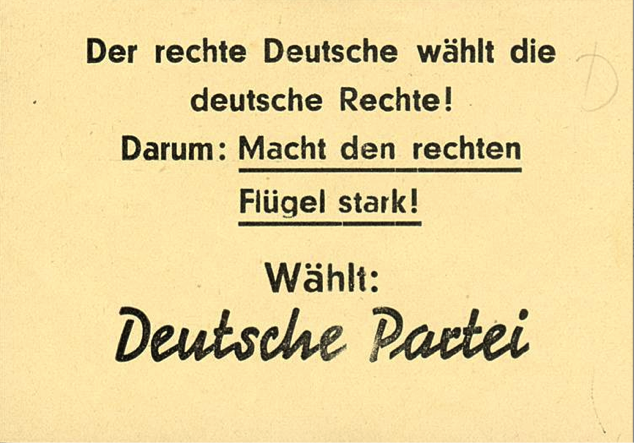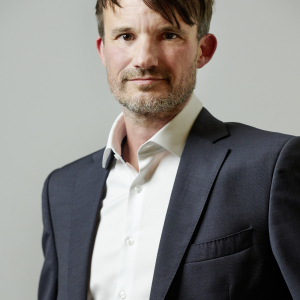Postdoc-Project
Part of the project "The Radical Right in Germany, 1945-2000" supported by the Volkswagen Foundation
The influence and impact of right-wing parties in postwar Germany were much greater than often appears in historical overviews and current political debates. In the western part, the Federal Republic, right-wing parties regularly had enough agency to contribute to the stabilization of a nationalist milieu from which they could operate and achieve political success in elections. But they also developed a legacy, for example, by setting right-wing agendas or helping ‚bürgerliche’ alliances to win majorities at the municipal, regional and even the federal level. In the GDR, too, there was a right-wing bloc party, the National Democratic Party of Germany (NDPD), which, as an (almost) always loyal partner of the SED, was able to push through many interests of its "national" clientele.
In the Bonn Republic, the normalization of nationalist programmatics, rhetorics and practices has also been referred to as ‘renazification,’ ‘restoration,’ ‘trend reversal’ (Tendenzwende) or ‘rightward shift’ (Rechtsruck). With regard to the occupation zones and Eastern Germany, the phenomenon was rather coinded as ‘new nationalism’. I examine these processes of formation and appropriation by using as a source the political, social, and historical research on right-wing parties published in the Federal Republic, the GDR, and in Western countries, most of which followed a radicalism-theoretical approach, and subjecting it to a nationalism-theoretical rereading.
I make these processes oft nationalist normaliation in occupied and divided Germany historizable with the help of the concept of nationalization: Just as liberalization pushes make certain areas of a society more liberal, a community becomes more nationalistic in certain areas through nationalization. The project ties in with historical research on nationalism, which has examined nationalization processes primarily in the 18th and 19th centuries, not in the 20th and 21st. The planned book also takes up impulses from historical party research, which has so far only dealt with the phenomenon of the ‘shift to the right’ in a punctual manner, using the CDU as an example, and not from the perspective of the right wing itself. Moreover, the project builds on historical research on the extreme right, which has so far focused on the ‘national opposition,’ but has hardly taken a systematic look at the causes and consequences of right-wing parties' participation in government – namely in the special case of the NDPD.
To project website: https://projekt.radikale-rechte.de/


